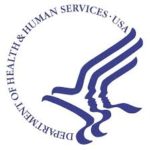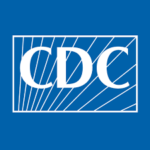The following is the latest health policy news from the federal government for October 18-24. Some of the language used below is taken directly from government documents.
 Centers for Medicare & Medicaid Services
Centers for Medicare & Medicaid Services
- CMS has issued new guidance outlining regulatory requirements for hospitals to report specific data on COVID-19, flu, and RSV. The new weekly electronic reporting requirements will apply to short-term acute-care hospitals, long-term-care hospitals, critical access hospitals, Indian Health Service hospitals, children’s hospitals, and cancer hospitals, with other types of hospitals – psychiatric hospitals and distinct part units and inpatient rehabilitation hospitals and distinct part units – subject to annual reporting requirements. Among the data they will be required to report are confirmed infections of respiratory illnesses among hospitalized patients; hospital bed census and capacity by hospital setting and patient population type; and patient demographic information. During local, state, or national declared emergencies, hospitals will be required to report additional data as well. Learn more about the new requirements, how the reporting will be done, and how CMS intends to enforce these requirements, which will be part of Medicare’s Conditions of Participation, from the following resources:
- CMS has posted a bulletin describing a new exception to reporting telehealth services during a Medicare-covered inpatient stay. Find that bulletin here. The new policy takes effect on April 1, 2025.
- CMS has posted a bulletin about billing that addresses corrections to editing for inpatient Part B ancillary 12X claims when Part A benefits exhaust and manual updates for billing of inpatient pre-entitlement days. Find that bulletin here. The changes take effect on April 1, 2025.
- CMS has posted a bulletin about separate Medicare payments for essential medicines that involves new, biweekly interim payments through the inpatient prospective payment system. Find that bulletin here. The policy took effect on October 1.
- CMS has posted a bulletin in which it describes updates of its Medicare wage index policy for certain rural hospitals, changing how it computes the rural floor. Find that bulletin here. The policy took effect on October 1.
- CMS’s Increasing Organ Transplant Access Model was scheduled to begin on January 1, 2025 but the agency has announced that it now anticipates a later start date. Learn more here.
- CMS has updated its two annual post-acute care health equity confidential feedback reports: the Discharge to Community Health Equity Confidential Feedback Report and the Medicare Spending Per Beneficiary Health Equity Confidential Feedback Report. These reports are available for long-term-care hospitals, inpatient rehabilitation facilities, skilled nursing facilities, and home health providers. These updated fall 2024 reports are based on data from 2022 and 2023. Learn more from this CMS notice, which includes links to the reports.
Proposed Preventive Services Regulation
The Department of Health and Human Services, Centers for Medicare & Medicaid Services, Department of Labor, and Department of the Treasury have proposed new rules titled “Enhancing Coverage of Preventive Services Under the Affordable Care Act” that would expand coverage of recommended preventive health services. Under the proposed rules, most health insurers would be required to cover over-the-counter contraceptives without cost sharing or a prescription. They also would have to provide consumers with more choices of covered contraceptives without cost sharing.
The proposed rules would require insurers to provide an accessible, transparent, and expedient exceptions process for all recommended preventive services, including all medically necessary and recommended preventive services, including contraception, certain immunizations, screenings, and other services for infants, children, and adolescents.
The departments also released guidance addressing insurers’ coverage of other recommended preventive services, including coverage of pre-exposure prophylaxis (PrEP), medication that reduces the risk of HIV infection, reiterating the requirement to cover preventive PrEP and related services without cost sharing. The guidance also addresses coverage of chest wall reconstruction with aesthetic flat closure if elected by the patient in connection with a mastectomy.
The proposed rules seek stakeholder feedback on whether proposals about coverage of recommended contraceptive items should be extended to other or all recommended preventive services and on other matters. The departments anticipate issuing another notice of proposed rulemaking in the near future to address coverage of all preventive services.
Learn more about the proposed rules from the following sources:
The deadline for submitting comments about the proposed rules will be 60 days after their official publication, which is scheduled for October 28.
 Aftermath of Hurricanes Helene and Milton
Aftermath of Hurricanes Helene and Milton
- The FDA has updated its “Hurricane Helene: Baxter’s manufacturing recovery in North Carolina” web page. The web page includes a list of parenteral drugs in short supply, temporary importation sources to help mitigate shortages, information and guidance on compounding, and links to recent communication between the federal government and stakeholders and to Baxter International. Find the FDA web page here.
- HHS has posted a fact sheet outlining its continuing effort to increase access to and the supply of IV fluids following Hurricane Helene. Find that fact sheet here.
- CMS has updated its waivers and flexibilities to help health care providers respond to the damage caused by Hurricane Helene in South Carolina, Tennessee, Georgia, North Carolina, and Florida and by Hurricane Milton in Florida. Find the updated waivers and flexibilities here. Please note that these waivers are not dated and therefore require individual attention by affected providers.
 Department of Health and Human Services
Department of Health and Human Services
- A new report by HHS’s Office of the Inspector General finds that Medicare Advantage plans’ questionable use of health risk assessments continues to drive up payments to plans by billions. Find that report here.
- In a new blog post, HHS’s Office of the Assistant Secretary for Technology outlines some of the ways that health care providers continue to violate regulations to prevent inappropriate information blocking, including imposing pre-conditions on the access, exchange, and use of electronic health information that are not required under HIPAA; barriers to access such as gatekeeping, delays, and difficulties in establishing the connection or registration of apps used by patients to view their electronic health information; and others. Learn more here.
- HHS’s Office of the Assistant Secretary for Planning and Evaluation (ASPE) has published a policy brief outlining the impact of a provision in the Inflation Reduction Act that established a limit on out-of-pocket spending for Medicare enrollees with very high prescription drug spending in Medicare Part D; the 2024 limit is $3500 and in 2025 it will be $2000. Find that issue brief here.
- In a new report, ASPE outlines the major issues faced by the U.S. health care workforce. The report addresses medical, dental, and behavioral health components of the workforce as well as direct care workers, presents opportunities for progress to address these issues, and describes existing activities supported by HHS to address these challenges. Learn more from the ASPE report “Health Care Workforce: Key Issues, Challenges, and the Path Forward.”
- With the closing of HHS’s Provider Relief Fund reporting portal for reporting period 7 on September 30, providers that missed this deadline have until November 1 to submit a request to report late due to extenuating circumstances. Learn more from the Provider Relief Fund’s reporting and auditing web page.
HHS Newsletters
- CMS – MLN Connects – October 24
- AHRQ News Now – October 22
- HRSA eNews – October 17 (includes funding opportunities)
HHS Videos
 Centers for Disease Control and Prevention (CDC)
Centers for Disease Control and Prevention (CDC)
- The CDC has recommended a second dose of the 2024-2025 COVID-19 vaccine for people 65 years and older and for those who are moderately or severely immunocompromised. Learn more from this CDC announcement.
- The CDC has recommended lowering the age for pneumonia vaccination from 65 to 50. Learn more from this CDC announcement.
Department of Homeland Security
The Department of Homeland Security’s Cybersecurity and Infrastructure Security Agency, the FBI, the National Security Agency, the Communications Security Establishment Canada, Australian Federal Police, and Australian Signals Directorate’s Australian Cyber Security Centre have released a joint cybersecurity advisory to warn network defenders of Iranian cyber actors’ use of brute force, such as password spraying, multifactor authentication ‘push bombing,’ and other techniques, to compromise organizations across multiple critical infrastructure sectors, including the health care and public health, government, information technology, engineering, and energy sectors. The actors likely seek to obtain credentials and information describing the victim’s network that can then be sold to enable access to cybercriminals. Learn more, including how to identify such attacks and how to defend against them, from the cybersecurity advisory.
 Stakeholder Events
Stakeholder Events
CMS – Home Health, Hospice and DME – October 30
CMS will hold an open-door forum for home health, hospice, and DME operators on Wednesday, October 30 at 2:00 (eastern). Go here to register to participate.
MACPAC – Commissioners Meeting – October 31-November 1
MACPAC commissioners will hold their next public meeting on Thursday, October 31 and Friday, November 1. Go here to register to participate virtually. When agenda and participation information are posted they will be here.
CMS – Healthcare Common Procedure Coding System (HCPCS) Public Meeting – November 6-8
CMS will hold a virtual Healthcare Common Procedure Coding System (HCPCS) public meeting to discuss its preliminary coding, Medicare benefit category, and payment determinations, if applicable, for new revisions to the HCPCS Level II code set for non-drug and non-biological items and services. The meetings will be held on Wednesday, Thursday, and Friday, November 6-8, from 9:00 to 5:00 (eastern) each day. Learn more about the purpose of the meeting, its agenda, how to submit questions and written comments, deadlines for submitting questions and materials or to request an opportunity to speak, and how to register to participate from this CMS notice.
CMS – Physicians, Nurses, and Allied Health Professionals Open Door Forum – November 7
CMS will hold an open-door forum for physicians, nurses, and allied health professionals on Thursday, November 7 at 2:00 (eastern). Go here to register to participate.
CMS – Hospital Open Door Forum – November 12
CMS will hold an open-door forum for hospital leaders on Tuesday, November 12 at 2:00 (eastern). Go here to register to participate.
CMS – Rural Health Open Door Forum – November 21
CMS will hold an open-door forum for rural health leaders on Thursday, November 21 at 2:00 (eastern). Go here to register to participate.
HHS – Office of the Assistant Secretary for Technology Policy – Annual Meeting – December 4-5
HHS’s Office of the Assistant Secretary for Technology Policy will hold its annual meeting in Washington, D.C. on Thursday, December 4 and Friday, December 5. The agency describes this meeting as “… two days of conversation, learning, and networking. You’ll hear about the key issues at the intersection of health care, public health, policymaking, and technology through a variety of keynote speakers and mainstage, breakout, and education sessions…” Go here for additional information and to register to attend.
CMS – 2024 CMS Optimizing Health Care Delivery to Improve Patient Lives Conference – December 12
CMS will hold a virtual conference that will convene change-makers from the health care community and federal government to share innovative ideas, lessons learned, and best practices that strengthen patient health care delivery and access to high-quality care by reducing the administrative burdens that affect patients and the health care workforce. The conference will be held on Thursday, December 12 at 11:00 (eastern). Go here for further information and to register to participate.

 Centers for Medicare & Medicaid Services
Centers for Medicare & Medicaid Services Stakeholder Events
Stakeholder Events